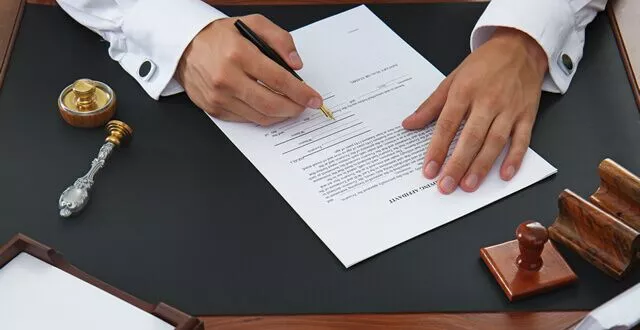Can a lawyer notarize their client’s affidavit for a pending matter and subsequently represent the client in the matter? The Ohio Board of Professional Conduct answered this question in the affirmative in its June 10, 2022 advisory opinion. If questions arise as to the affidavit’s execution or the affiant’s identity, however, then a court must hold a hearing to determine if it will disqualify the lawyer under Ohio Professional Conduct Rule 3.7.
Prof.Cond.R. 3.7(a) prohibits a lawyer from acting as “an advocate” in a trial where he “is likely to be a necessary witness.” The Board concluded that notarizing a client’s document will not immediately transform the lawyer into a necessary witness. It also will not make it likely the lawyer would serve as a witness in the matter. The Board reasoned a notarizing lawyer is not taking responsibility for or verifying the facts contained in an affidavit. The lawyer is only confirming the client appeared before him and signed the document in his presence. The lawyer’s notarization is neither material nor relevant to the underlying litigation. The notarizing lawyer’s experience is no different from the experience of a notary unknown to the client.
Assuming the lawyer follows proper notarization procedures, the Board believes the likelihood of the lawyer being a witness is low. Thus, harm is unlikely to occur from a lawyer notarizing a client’s affidavit and then representing him. Upon questioning, however, a court may need to hold a hearing to establish whether the lawyer is a necessary witness. The determination as to whether counsel may continue to represent the client should be made on a case-by-case basis after a hearing. In sum, Prof.Cond.R. 3.7 does not automatically prohibit a lawyer from representing a client when the lawyer has notarized the client’s affidavit in that matter.

